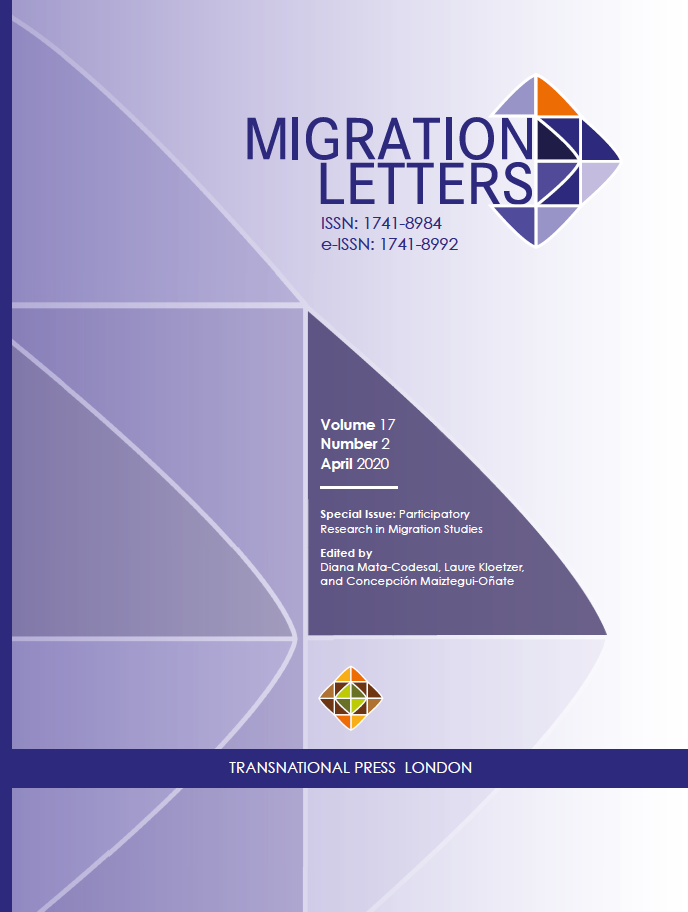Who gives “Voice” or “Empowers Migrants” in Participatory Action Research? Challenges and Solutions
Who gives “Voice” or “Empowers Migrants” in Participatory Action Research? Challenges and Solutions
Author(s): Martha Montero-SieburthSubject(s): Sociology of Culture, Migration Studies
Published by: Transnational Press London
Keywords: The Giving of Voice; Participatory Action Research (PAR); migration research; emotional knowledge; cultural humility;
Summary/Abstract: Given the power relationships between researchers and participants in Participatory Action Research (PAR), this chapter challenges the assumption that migration researchers “give voice” or “empower” participants, and advances the idea that such researchers need to uncover their own voice in the research process through dialogue, interaction and reflection with their partners. In the literature review on PAR, the concept of “giving voice” is quite prevalent yet based on the author’s own qualitative/migration research, she would argue that the actual voice of participants themselves is seldom emphasized or revealed in qualitative/migration research. Paulo Freire’s concepts of dialogue, conscientization, and action for change underscored by his interpretation of voice, which recognizes that marginalized people’s voices emerge out of the conditioned silence created by differential power dynamics, is critically needed as grounding for PAR researchers. In critiquing the use of voice, the conclusion makes a plea for PAR researchers to engage in finding their own voice by embracing the notion of cultural humility.
Journal: Migration Letters
- Issue Year: 17/2020
- Issue No: 2
- Page Range: 211-218
- Page Count: 8
- Language: English

